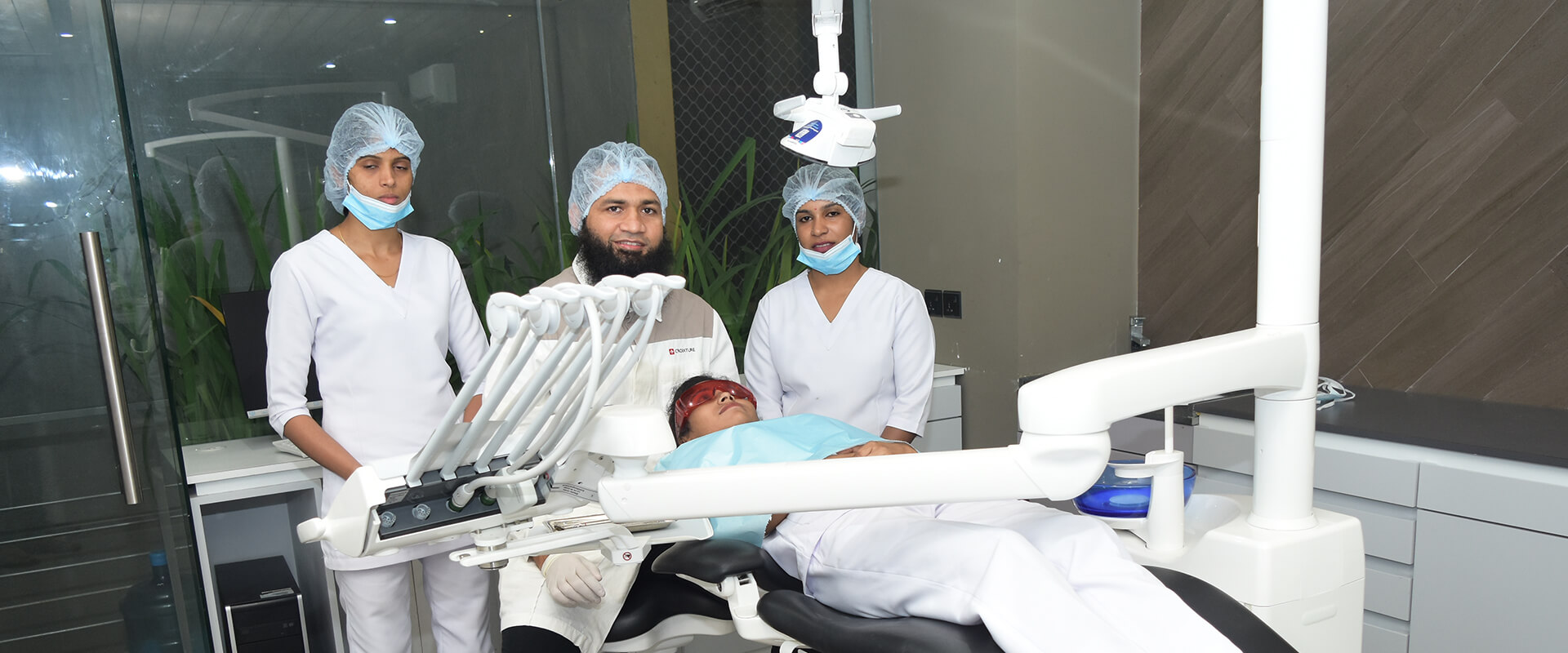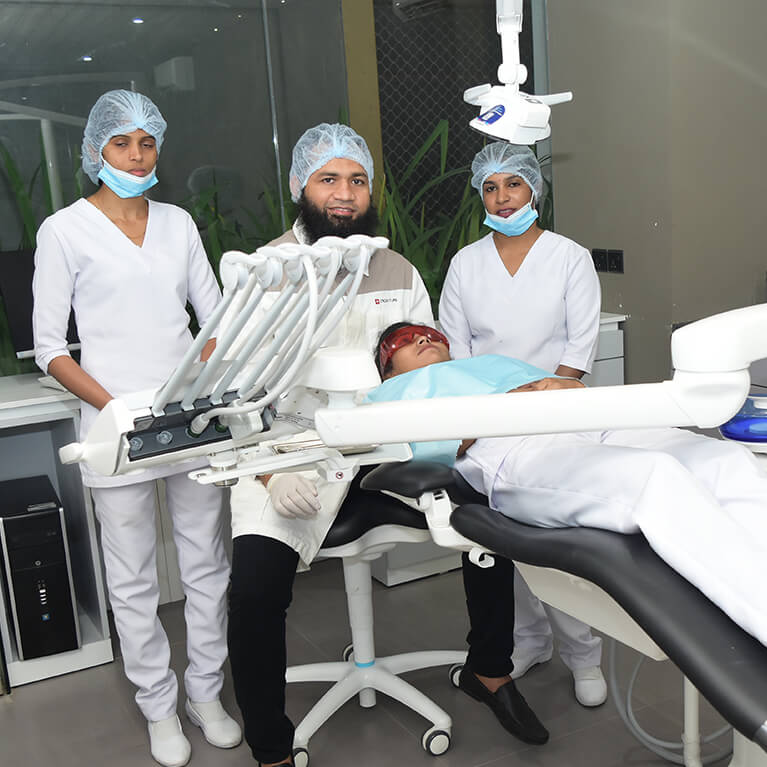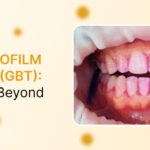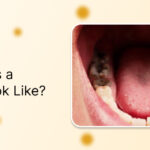10 tips to get rid of dental anxiety
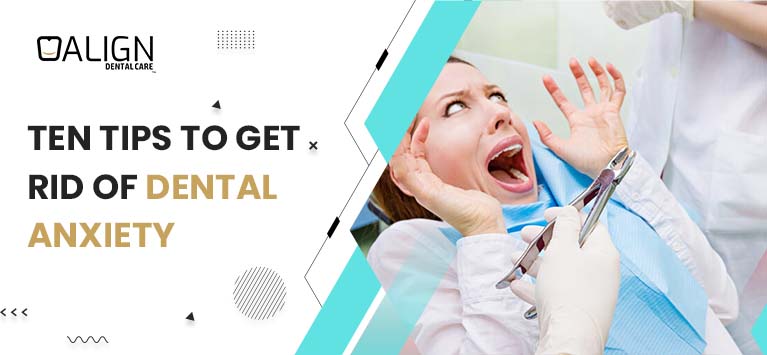
Do you find visiting the dentist terrifying? Despite being more prevalent, dental anxiety is easily manageable.
Your oral health will be negatively impacted if you cannot overcome your dental phobia. So throw your fear out by knowing what dental anxiety is and including its symptoms, reasons for existing, and some tactics and strategies for overcoming it in this blog post.
Read on to overcome your phobia!
Dental anxiety: What is it?
Dental anxiety is the anxiety, dread, or tension related to a dental environment.
Odontophobia, often known as dental phobia, is a relatively frequent cause of people skipping their scheduled exams for oral health. Some individuals are genuinely terrified to visit the dentist.
Signs and symptoms of dental anxiety
Here are some symptoms that indicate you have dental anxiety.
- Increase in heartbeat rate
- Using humor or aggression to disguise nervousness
- Low blood pressure
- Sweating
Causes of dental anxiety
- Fear of pain
- Poor experience
- Embarrassment in allowing others to touch your mouth
- Fear of needles and drill sound
- A poor impression of dentists
- Panic due to claustrophobia
Tips and tricks to overcome dental anxiety
We know that there will always be remedies if there is an issue. Here are some tips and tricks for a calm and relaxed dental checkup.
Pick the ideal dentist for yourself.
First and foremost, you must select a reputable dentist who specializes in helping those who have anxiety and fear of the dentist. Additionally, pick a dentist who treats you well and who gets positive feedback from their present patients.
Share your anxiety.
Sharing your feelings can have a significant impact on how things turn out. Discussing your fears with your dentist may help you overcome them and maintain your comfort. There are others you can discuss your anxiety with besides your dentist. You can seek counseling or talk to your friends and family about your anxiety.
Deviation may be advantageous.
If there is a television in the clinic, you can watch films, videos, and other media there. If not, you can use your tablet or mobile device. Get relaxed by endeavoring deviation strategies like hearing your favorite playlists, audio files, and podcasts. Even engaging in conversions helps you distract from dental fear.
Engage in deep breathing exercises.
Breathing is the key to remaining calm and relaxing in some situations. Breathing can bring physiological changes to our body, like reducing the heart’s pulse rate and lowering blood pressure. Additionally, the blood stress level can also be lowered.
CBT (Cognitive-Behavioural Therapy).
CBT is a form of psychological treatment. It will help people manage mental health conditions like stress, depression, phobias, and anxiety. This treatment approach helps you recognize negative thoughts and find ways to replace them with positive ones. So, this therapy can be used to treat dental phobia and its associated conditions.
Request for sedative solutions.
Sedatives are one of the options. Ask your dentist about sedatives using relaxation techniques if you cannot reduce your anxiety. During dental procedures, sedation is used to keep you comfortable. Nitrous oxide, oral conscious sedation, and intravenous (IV) sedation are available.
Bring a support person along.
A friend can sometimes be all you need to grasp your hand and reassure you that everything will be good. Ask a friend or member of your family to accompany you if you’re nervous about receiving therapy. A friend may sit by your side in the room during the procedure.
Skip the caffeine.
Before a dentist appointment, pay attention to your food. It’s common knowledge that foods heavy in sugar and caffeine can cause jitters, so it’s best to avoid them before your visit. Instead, opt for protein-rich foods, as they have a soothing influence.
Establish non-frantic times for your appointments.
Choose a time for your appointment that is convenient for you. Avoid rushing to your appointment on time because doing so will make you uptight and anxious. You might find it beneficial to lessen your worry when fewer patients are scheduled.
Take breaks.
You can relax for a while between dental procedures by taking pauses. You can utilize a few signs to let your dentists know you need a rest. As a result of your mind and body relaxing when needed, this will lower your anxiety level.
Bottom Line
It’s not difficult to overcome your dentophobia. Your dental anxiety should never take you away from your path toward maintaining excellent oral hygiene. It’s essential to be open about your anxiety, consult a dentist, and share your problems. Follow these tips to eliminate anxiety and maintain excellent oral hygiene through regular dental checkups.
All you need to know about a single misaligned tooth
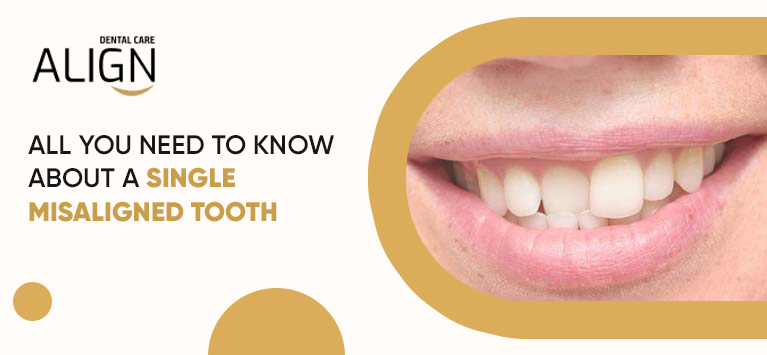
What is snaggletooth?
A snaggle tooth is a single misaligned tooth that differs from the rest of your teeth in shape or placement. Depending on how the tooth is misaligned , you may face discomforts and may feel difficult during brushing and flossing in certain areas.
The phrase “snaggle tooth” is sometimes used colloquially to describe a single tooth that is noticeably out of alignment, giving the person’s smile a somewhat crooked or uneven appearance.
Causes of snaggletooth
Numerous things, including genetics, childhood practices, and problems with oral development, can contribute to this illness. Let’s discuss in detail. Your teeth will twist or move one or more teeth backward or forward if there is not enough room for them to line up properly.
Genetics
Genetics has an impact on how teeth naturally align. There is a greater likelihood that their children may experience similar dental issues if their parents or other close relatives have misaligned teeth
Thumb Sucking or Pacifier Use
Using a pacifier or thumb sucking for an extended period of time throughout early childhood might cause teeth to erupt out of alignment
Early Tooth Loss
Losing a baby tooth too soon without taking the correct steps to maintain the space, might cause the teeth next to it to shift and become misaligned
Jaw Growth Disorders
Problems with jaw development and growth can also cause dental misalignment
Chronic mouth breathing
Chronic mouth breathing,which is frequently brought on by allergies or other conditions, can gradually change the position of teeth
Poor or changing tongue posture
An improper or shifting tongue position might alter the position of teeth
Ways to fix a snaggle tooth
The most important determining criteria for the type of therapy needed are age and the severity of the misaligned teeth.
In cases of modest crowding, dental bonding or veneers may be used to improve the tooth’s appearance without requiring comprehensive orthodontic treatment.
Veneers are very thin porcelain or composite shells that are manufactured specifically for each tooth’s shape. When a person has two crooked teeth or slightly damaged snaggle teeth, veneers might be quite beneficial.
When teeth are often out of alignment, metal braces or clear Aligners are preferable.All you need to know about snaggletooth
Braces
One of the most widely used techniques for straightening outcropping teeth is braces. They work by exerting pressure on your teeth with brackets and wires that are attached (one on each tooth).
Braces can be worn for as little as a few months or as long as two years, depending on a person’s oral health. To help stabilize your teeth when the braces are removed, you will need a retainer for the rest of your life
Invisible Aligners
Because of its effectiveness and user-friendliness, aligners are a popular alternative to braces for teeth that are out of alignment. Aligners are invisible plastic trays that are attached to your teeth and function similarly to braces.
The fact that aligners are transparent objects that allow you to express yourself freely is one of their main advantages. You are not required to adhere to any dietary restrictions, and maintaining them is very simple
Tooth Contouring
Tooth contouring is the least expensive solution and is recommended to treat mild cases of protrusion. Without seriously affecting the enamel, small amounts of the tooth will be removed so that the cosmetic issue can be fixed to a great extent
Surgical options
In severe cases where the misalignment is caused by jaw problems, surgery may be required to straighten the teeth and jaws.
Bottom Line
One or more teeth that are obviously misaligned, projecting, or sticking out from the rest of the teeth’s regular alignment are referred to as “snaggletooth” conditions in dentistry. Even if it has become fashionable in recent years, there is no need to clumsily stare at your crooked teeth.
Snaggletooth refers to a particular type of tooth misalignment in which one or more teeth are positioned differently from the neighboring teeth. This may result in the smile looking less aesthetically attractive.
It is advised that you see a dentist or orthodontist if you have misaligned teeth so that they can offer personalized advice and treatment choices depending on your particular condition.
What Causes Dental Implants Failure?
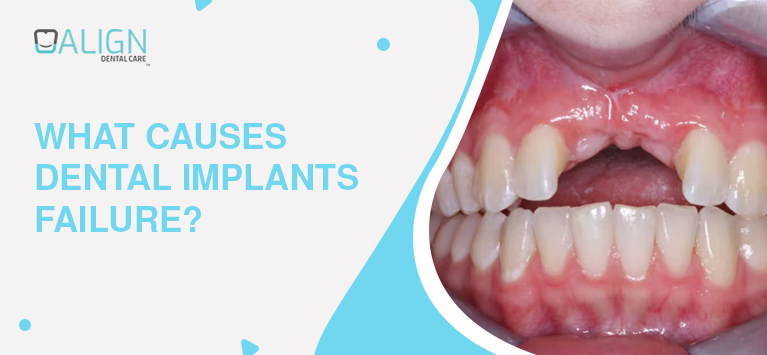
Dental Implants are the most popular way to replace the tooth that has been damaged or lost. It is extremely comfortable and appears like natural teeth to the naked eye. Since they are fully integrated into the jawbone and are an integral part of your body they’re the safest method of tooth replacement you could find. As long as you handle them like your natural tooth, you’ll often forget that they’re not real!
If the procedure is carried out properly by a skilled dentist (like ours) the chance of success is high. However, you might be interested in finding out what can cause the rare tooth-implant failure. These are the most common reasons that some dental implants don’t work.
- Poor dental hygiene/Patient negligence
- Sinus problems
- Foreign body rejection
- Osseointegration failure
- Allergies to metal
3 finest solutions to deal with Loose Dental Implant Screw
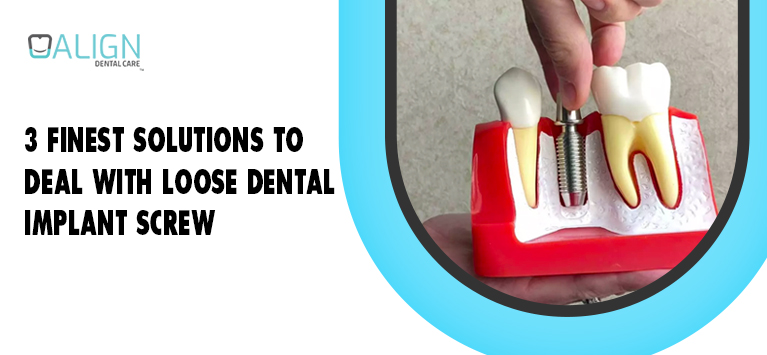
Dental implant restoration is proclaimed as the best solution to replace missing teeth regardless of the number of teeth a person lost. As implant teeth mimic the appearance and behavior of natural teeth, revamping missing teeth with implants allows you to eat whatever you want without pain. You might aware of the advantages of dental implants.
The implants trigger some dilemmas when they become old. Besides this, implants have further complications that are mainly categorized as surgically-related problems, peri-implant-related problems, mechanically-related problems, and hardware-related problems.
Read More…Dental Bone Grafting alternative techniques
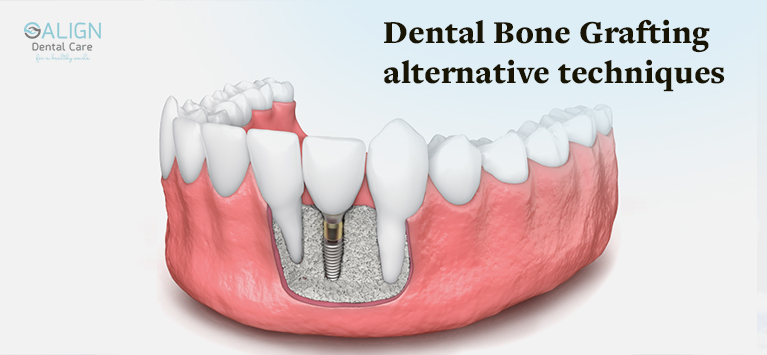
Bone grafting is a surgical procedure that helps in building up the lost bone in the jaw. It is generally performed for people who do not have enough bone volume in their jaw before fixing dental implants. You might know that the success rate of implants embedded in the eroded jaw bone is relatively low. So, dentists prefer a solution to manually rebuilt the bone to provide a dense and strong foundation for the implant teeth.
The technique of bone graft takes several months to heal. However, oral specialists incorporate advanced solutions like Platelet Rich Plasma (PRP) Therapy with bone grafts to fasten the healing process.
Read More…5 Tips to speed up healing after dental implant surgery
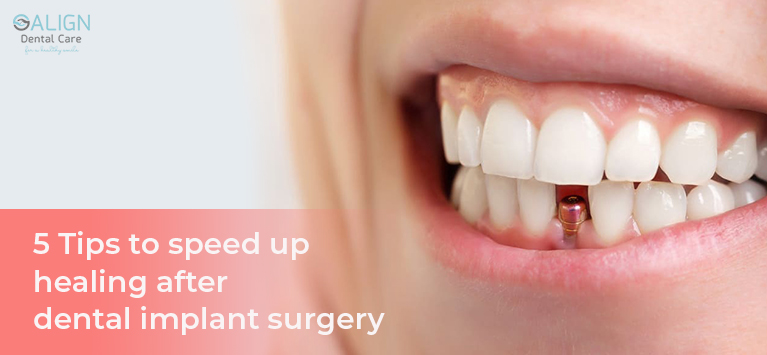
If you are considering dental implants, then it means you got the best step to restore your missing teeth. Unlike dentures and dental bridges, the implant teeth revamp the tooth roots and preserve the surrounding structures that ensure better functionality like natural teeth.
Now, we want to tell you a fact regarding this restoration.
Read More…6 Harmful effects of eating without teeth

Apart from the social embarrassment, speech impediment and cosmetic flaws, missing teeth will cause many long-term irreversible damages to your health if you prefer eating with no teeth.
Few people feel convenient in eating with missing teeth or without appliances like dentures. Despite they become familiar with this practice, it will become detrimental to their mouth and health over time. This article deals with the harmful consequences of eating up without teeth.
Read More…Tips to care for Dental Implants

Dental implant surgery has been one of the most popular oral surgeries in recent times. Dental implants are performed for a myriad of reasons and help provide relief to patients. Right from replacing a missing tooth to reducing the impact of an accident, dental implants are indeed very diverse when it comes to their applications.
Read More…7 Signs that show your implant tooth is infected

The implant surgery involves replacing the root of a missing tooth by implanting a metal screw into the jaw bone and mounting a tooth-shaped crown on the implant post. As the false tooth is fixed with an artificial tooth root, the implant teeth can function like a natural tooth and efficiently restores the functionalities of the tooth.
Read More…




